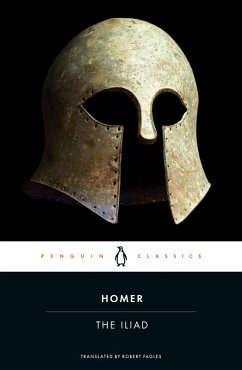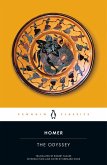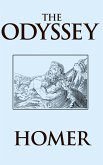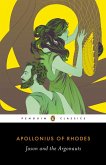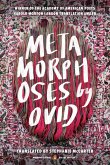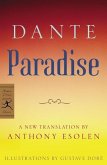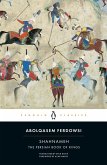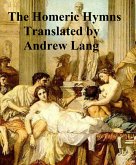10,95 €
10,95 €
inkl. MwSt.
Sofort per Download lieferbar

5 °P sammeln
10,95 €
Als Download kaufen

10,95 €
inkl. MwSt.
Sofort per Download lieferbar

5 °P sammeln
Jetzt verschenken
Alle Infos zum eBook verschenken
10,95 €
inkl. MwSt.
Sofort per Download lieferbar
Alle Infos zum eBook verschenken

5 °P sammeln
- Format: ePub
- Merkliste
- Auf die Merkliste
- Bewerten Bewerten
- Teilen
- Produkt teilen
- Produkterinnerung
- Produkterinnerung

Bitte loggen Sie sich zunächst in Ihr Kundenkonto ein oder registrieren Sie sich bei
bücher.de, um das eBook-Abo tolino select nutzen zu können.
Hier können Sie sich einloggen
Hier können Sie sich einloggen
Sie sind bereits eingeloggt. Klicken Sie auf 2. tolino select Abo, um fortzufahren.

Bitte loggen Sie sich zunächst in Ihr Kundenkonto ein oder registrieren Sie sich bei bücher.de, um das eBook-Abo tolino select nutzen zu können.
This translation of The Iliad equals Fitzgerald's earlier Odyssey in power and imagination. It recreates the original action as conceived by Homer, using fresh and flexible blank verse that is both lyrical and dramatic.
- Geräte: eReader
- mit Kopierschutz
- eBook Hilfe
- Größe: 1.43MB
- FamilySharing(5)
Andere Kunden interessierten sich auch für
![The Odyssey (eBook, ePUB) The Odyssey (eBook, ePUB)]() HomerThe Odyssey (eBook, ePUB)6,99 €
HomerThe Odyssey (eBook, ePUB)6,99 €![The Odyssey (eBook, ePUB) The Odyssey (eBook, ePUB)]() HomerThe Odyssey (eBook, ePUB)0,99 €
HomerThe Odyssey (eBook, ePUB)0,99 €![Jason and the Argonauts (eBook, ePUB) Jason and the Argonauts (eBook, ePUB)]() Apollonius Of RhodesJason and the Argonauts (eBook, ePUB)3,99 €
Apollonius Of RhodesJason and the Argonauts (eBook, ePUB)3,99 €![Metamorphoses (eBook, ePUB) Metamorphoses (eBook, ePUB)]() OvidMetamorphoses (eBook, ePUB)5,99 €
OvidMetamorphoses (eBook, ePUB)5,99 €![Paradise (eBook, ePUB) Paradise (eBook, ePUB)]() DanteParadise (eBook, ePUB)7,99 €
DanteParadise (eBook, ePUB)7,99 €![Shahnameh (eBook, ePUB) Shahnameh (eBook, ePUB)]() Abolqasem FerdowsiShahnameh (eBook, ePUB)15,95 €
Abolqasem FerdowsiShahnameh (eBook, ePUB)15,95 €![The Homeric Hymns (eBook, ePUB) The Homeric Hymns (eBook, ePUB)]() HomerThe Homeric Hymns (eBook, ePUB)0,91 €
HomerThe Homeric Hymns (eBook, ePUB)0,91 €-
-
-
This translation of The Iliad equals Fitzgerald's earlier Odyssey in power and imagination. It recreates the original action as conceived by Homer, using fresh and flexible blank verse that is both lyrical and dramatic.
Hinweis: Dieser Artikel kann nur an eine deutsche Lieferadresse ausgeliefert werden.
Dieser Download kann aus rechtlichen Gründen nur mit Rechnungsadresse in A, B, BG, CZ, D, DK, EW, E, FIN, F, GR, HR, H, I, LT, L, LR, NL, PL, P, R, S, SLO, SK ausgeliefert werden.
Hinweis: Dieser Artikel kann nur an eine deutsche Lieferadresse ausgeliefert werden.
Produktdetails
- Produktdetails
- Verlag: Penguin Publishing Group
- Seitenzahl: 704
- Erscheinungstermin: 1. Juli 1991
- Englisch
- ISBN-13: 9781101153635
- Artikelnr.: 43592186
- Verlag: Penguin Publishing Group
- Seitenzahl: 704
- Erscheinungstermin: 1. Juli 1991
- Englisch
- ISBN-13: 9781101153635
- Artikelnr.: 43592186
- Herstellerkennzeichnung Die Herstellerinformationen sind derzeit nicht verfügbar.
Homer was probably born around 725BC on the Coast of Asia Minor, now the coast of Turkey, but then really a part of Greece. Homer was the first Greek writer whose work survives. He was one of a long line of bards, or poets, who worked in the oral tradition. Homer and other bards of the time could recite, or chant, long epic poems. Both works attributed to Homer - the Iliad and the Odyssey - are over ten thousand lines long in the original. Homer must have had an amazing memory but was helped by the formulaic poetry style of the time. In the Iliad Homer sang of death and glory, of a few days in the struggle between the Greeks and the Trojans. Mortal men played out their fate under the gaze of the gods. The Odyssey is the original collection of tall traveller's tales. Odysseus, on his way home from the Trojan War, encounters all kinds of marvels from one-eyed giants to witches and beautiful temptresses. His adventures are many and memorable before he gets back to Ithaca and his faithful wife Penelope. We can never be certain that both these stories belonged to Homer. In fact 'Homer' may not be a real name but a kind of nickname meaning perhaps 'the hostage' or 'the blind one'. Whatever the truth of their origin, the two stories, developed around three thousand years ago, may well still be read in three thousand years' time. Martin Hammond is headmaster of the Tonbridge School and has translated Homer's Iliad for Penguin Classics.
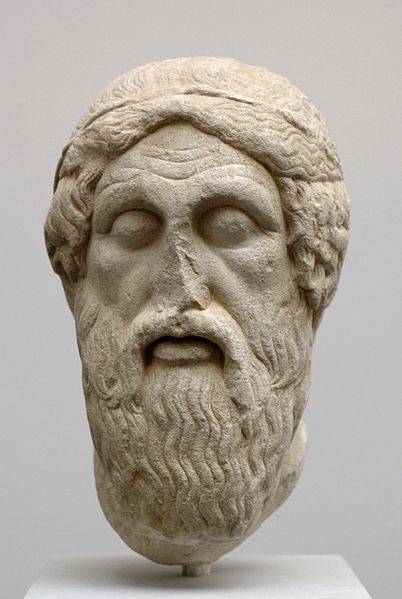
The IliadTranslator's Preface
Introduction
Introduction
The Spelling and Pronunciation of Homeric Names
Maps
1. Homeric Geography: Mainland Greece
2. Homeric Geography: The Peloponnese
3. Homeric Geography: The Aegean and Asia Minor
Inset: Troy and Vicinity
Homer: The Iliad
Book 1: The Rage of Achilles
Book 2: The Great Gathering of Armies
Book 3: Helen Reviews the Champions
Book 4: The Truce Erupts in War
Book 5: Diomedes Fights the Gods
Book 6: Hector Returns to Troy
Book 7: Ajax Duels with Hector
Book 8: The Tide of Battle Turns
Book 9: The Embassy to Achilles
Book 10: Marauding Through the Night
Book 11: Agamemnon's Day of Glory
Book 12: The Trojans Storm the Rampart
Book 13: Battling for the Ships
Book 14: Hera Outflanks Zeus
Book 15: The Achaean Armies at Bay
Book 16: Patroclus Fights and Dies
Book 17: Menelaus' Finest Hour
Book 18: The Shield of Achilles
Book 19: The Champion Arms for Battle
Book 20: Olympian Gods in Arms
Book 21: Achilles Fights the River
Book 22: The Death of Hector
Book 23: Funeral Games for Patroclus
Book 24: Achilles and Priam
Notes
The Genealogy of the Royal House of Troy
Textual Variants from the Oxford Classical Text
Notes on the Translation
Suggestions for Further Reading
Pronouncing Glossary
Introduction
Introduction
The Spelling and Pronunciation of Homeric Names
Maps
1. Homeric Geography: Mainland Greece
2. Homeric Geography: The Peloponnese
3. Homeric Geography: The Aegean and Asia Minor
Inset: Troy and Vicinity
Homer: The Iliad
Book 1: The Rage of Achilles
Book 2: The Great Gathering of Armies
Book 3: Helen Reviews the Champions
Book 4: The Truce Erupts in War
Book 5: Diomedes Fights the Gods
Book 6: Hector Returns to Troy
Book 7: Ajax Duels with Hector
Book 8: The Tide of Battle Turns
Book 9: The Embassy to Achilles
Book 10: Marauding Through the Night
Book 11: Agamemnon's Day of Glory
Book 12: The Trojans Storm the Rampart
Book 13: Battling for the Ships
Book 14: Hera Outflanks Zeus
Book 15: The Achaean Armies at Bay
Book 16: Patroclus Fights and Dies
Book 17: Menelaus' Finest Hour
Book 18: The Shield of Achilles
Book 19: The Champion Arms for Battle
Book 20: Olympian Gods in Arms
Book 21: Achilles Fights the River
Book 22: The Death of Hector
Book 23: Funeral Games for Patroclus
Book 24: Achilles and Priam
Notes
The Genealogy of the Royal House of Troy
Textual Variants from the Oxford Classical Text
Notes on the Translation
Suggestions for Further Reading
Pronouncing Glossary
The IliadTranslator's Preface
Introduction
Introduction
The Spelling and Pronunciation of Homeric Names
Maps
1. Homeric Geography: Mainland Greece
2. Homeric Geography: The Peloponnese
3. Homeric Geography: The Aegean and Asia Minor
Inset: Troy and Vicinity
Homer: The Iliad
Book 1: The Rage of Achilles
Book 2: The Great Gathering of Armies
Book 3: Helen Reviews the Champions
Book 4: The Truce Erupts in War
Book 5: Diomedes Fights the Gods
Book 6: Hector Returns to Troy
Book 7: Ajax Duels with Hector
Book 8: The Tide of Battle Turns
Book 9: The Embassy to Achilles
Book 10: Marauding Through the Night
Book 11: Agamemnon's Day of Glory
Book 12: The Trojans Storm the Rampart
Book 13: Battling for the Ships
Book 14: Hera Outflanks Zeus
Book 15: The Achaean Armies at Bay
Book 16: Patroclus Fights and Dies
Book 17: Menelaus' Finest Hour
Book 18: The Shield of Achilles
Book 19: The Champion Arms for Battle
Book 20: Olympian Gods in Arms
Book 21: Achilles Fights the River
Book 22: The Death of Hector
Book 23: Funeral Games for Patroclus
Book 24: Achilles and Priam
Notes
The Genealogy of the Royal House of Troy
Textual Variants from the Oxford Classical Text
Notes on the Translation
Suggestions for Further Reading
Pronouncing Glossary
Introduction
Introduction
The Spelling and Pronunciation of Homeric Names
Maps
1. Homeric Geography: Mainland Greece
2. Homeric Geography: The Peloponnese
3. Homeric Geography: The Aegean and Asia Minor
Inset: Troy and Vicinity
Homer: The Iliad
Book 1: The Rage of Achilles
Book 2: The Great Gathering of Armies
Book 3: Helen Reviews the Champions
Book 4: The Truce Erupts in War
Book 5: Diomedes Fights the Gods
Book 6: Hector Returns to Troy
Book 7: Ajax Duels with Hector
Book 8: The Tide of Battle Turns
Book 9: The Embassy to Achilles
Book 10: Marauding Through the Night
Book 11: Agamemnon's Day of Glory
Book 12: The Trojans Storm the Rampart
Book 13: Battling for the Ships
Book 14: Hera Outflanks Zeus
Book 15: The Achaean Armies at Bay
Book 16: Patroclus Fights and Dies
Book 17: Menelaus' Finest Hour
Book 18: The Shield of Achilles
Book 19: The Champion Arms for Battle
Book 20: Olympian Gods in Arms
Book 21: Achilles Fights the River
Book 22: The Death of Hector
Book 23: Funeral Games for Patroclus
Book 24: Achilles and Priam
Notes
The Genealogy of the Royal House of Troy
Textual Variants from the Oxford Classical Text
Notes on the Translation
Suggestions for Further Reading
Pronouncing Glossary
